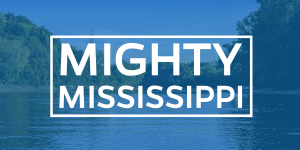Making Change in the Magnolia State: How Mississippi Is Seeking Solutions for Teaching and Leading
The Mississippi CEEDAR State Leadership Team, branded the Teaching and Leading Solutions Group (TLSG), identified four focus areas for reform: revising licensure structures; recruiting, preparing, and retaining effective teachers; strengthening preparation program review; and improving communication across stakeholders. The members that comprise the TLSG include the Mississippi Department of Education, William Carey University, Delta State University, and the University of Mississippi (Ole Miss). In addition to the core focus areas of the TLSG, each of the participating universities has embarked on related initiatives that target specific needs of the local school districts they serve.
Delta State is focusing on co-developing year-long clinical models with partner schools. Dr. Corlis Snow explained that the purpose of this initiative is to provide pre-service teachers with extensive experiences prior to program completion to ensure they are ready to teach on day one. Dr. Snow stated, “We want to ensure that all graduates will immediately and effectively impact all students, including students with special needs, from their first day. We want to prepare them so they know exactly what they need to do.” Delta State established a partnership with a local principal to bring this clinical model to fruition. Based on the partnership’s success, Delta State is working to expand by developing similar relationships with other local schools.
William Carey is honing its reform efforts on retaining and preparing effective teachers by focusing on literacy preparation. Dr. June Hornsby, professor of education and director of student teaching at William Carey, reported that an important step in this initiative is to review course syllabi to identify gaps and areas for improvement in literacy instruction using the Literacy innovation configuration (IC) provided by the CEEDAR Center. In addition, she discussed how helpful it was to host a two-day literacy training workshop for pre-service teachers, current practicing teachers, and faculty in jump starting their literacy reform effort. The literacy workshop was so well received that William Carey planned another iteration during the university’s annual Pedagogy Conference.
Ole Miss has an eye on improving the knowledge, skills, and practices for faculty and teacher and leader candidates in culturally responsive pedagogy. Dr. Nichelle Robinson, School of Education diversity officer, leads the reform efforts at Ole Miss. Events aimed at increasing knowledge of faculty and students include a series of diversity symposiums and brown bag luncheons to extend conversations. For example, Ole Miss recently hosted a brown bag luncheon where faculty participants engaged in dialogue surrounding the events at Charlottesville and strategies to engage students in classroom discussions and activities. Faculty also reviewed syllabi using the Culturally Responsive Pedagogy IC to identify gaps in coursework across teacher and leader programs. Finally, a core group of faculty collaborated to create a graduate-level diversity endorsement program. Ole Miss plans to partner with local community colleges, high schools, and middle schools to increase recruitment of minorities to education professions.
The TLSG faced changes in leadership, which is not uncommon. Recognizing strengths, leveraging success, and pushing forward as opportunities arose aided the team in coalescing to surmount these challenges and maintain their reform momentum. Mississippi is motivated to improve outcomes for students with disabilities and those who struggle. We are certain that their efforts will continue to blossom as fruitfully as their namesake magnolia tree.
Questions or Comments?
Contact us at ceedar@coe.ufl.edu




